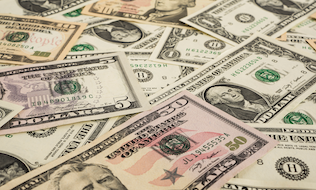
U.S. employers are expected to keep pay raises steady at three per cent in 2017, according to research by Willis Towers Watson. That’s on par with raises over the past three years, though the average expected raise for executives (3.1 per cent) is slightly lower than what they received in 2015 and 2016.
This year, employers gave professional staff with the highest performance ratings an average raise of 4.6 per cent, compared to the 2.6 raise for staff with an average performance rating. Employees with below-average ratings saw salary increases of less than one per cent.
Read: Predictions for 2017 salary increases lowest “in more than two decades,” survey finds
“Given the continued low rates of inflation and the ongoing pressure on profit margins, employers remain cautious when it comes to budgeting salary increases,” Laura Sejen, managing director of rewards at Willis Towers Watson, said in a release.
The survey also expects bonuses to either hold steady or drop slightly in 2017. Bonuses for professional employees, for example, are projected to be 11.6 per cent of their salary, which is similar to what employers budgeted for 2016.
Read: Making the best use of salary increase survey data
Discretionary bonuses, on the other hand, are expected to increase next year, rising to 5.6 per cent of salary compared to the 5.3 per cent that was seen in 2015.
“Unlike salaries, incentives are variable and give employers much greater discretion in rewarding employees for performing at superior levels,” said Sandra McLellan, North America practice leader of rewards at Willis Towers Watson. “During times when employees have greater opportunities to seek employment elsewhere, employers need to evaluate their total rewards strategies and programs to ensure their top employees don’t take their skills elsewhere.”
